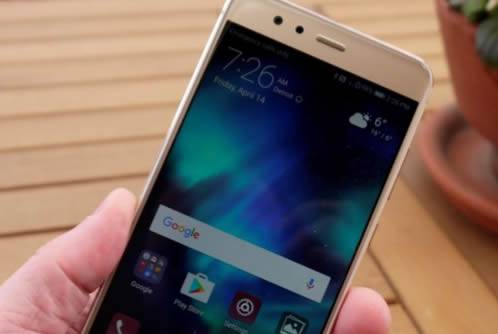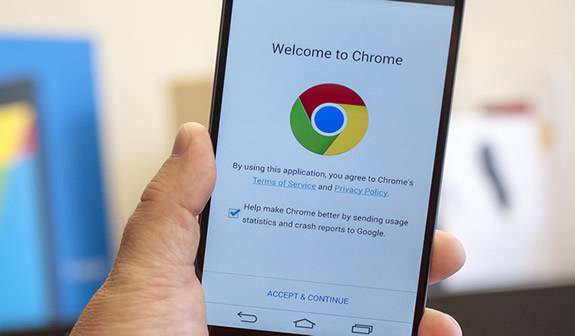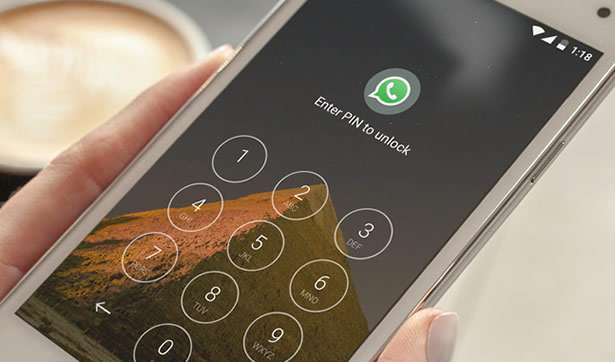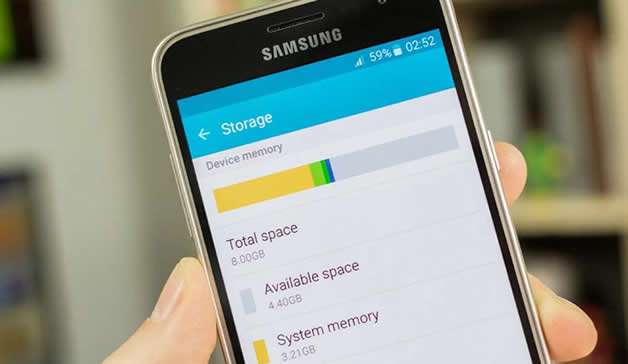Reducing data usage on an Android phone is a great way to ensure you don’t go over your monthly plan limit. Here are some tips that can help you reduce your data usage:
1. Monitor Your Data Usage: Use the built-in “Data Usage” feature in Settings to keep track of how much data you’re using. This will give you an idea of which apps use more data so that you can focus on reducing the most significant offenders.
2. Restrict Background Data: To save even more, restrict background data from certain applications by navigating to Settings -> Apps -> (select app) -> Data Usage and toggle ‘Background Data’ off. This will prevent apps from running when they’re not actively being used, thus saving battery life as well as reducing data consumption.
3. Tweak Sync Intervals: Some applications sync content (such as Gmail or Facebook) automatically in intervals set by default, but these settings can be tweaked manually under their respective settings menus; try setting them to longer periods if possible without impacting your workflow too significantly – this should reduce the amount of times they run in the background and therefore minimize their effect on your mobile data allowance each month.
4. Wi-Fi Whenever Possible: Make sure Wi-Fi is enabled whenever possible; it’s a great way to access online content without consuming any of your mobile data allowance! If there isn’t a free public network available for use then consider investing in a wireless router for home use instead – it’ll pay for itself in no time at all with the savings made through reduced mobile bills each month!
Why is my phone using so much data?
What uses data on my Android phone?
There are a variety of apps and services that can use data on your Android phone. Some examples include social media, online shopping, email, streaming music or video services, navigation apps such as Google Maps or Waze, and other web-based activities. To view the list of all installed applications on your device that may be using data, you can open Settings > Apps & notifications > See all [x] apps > App info. From here you will be able to see which of your installed applications have access to mobile data usage.
What causes high data usage on Android phone?
Data usage on Android phones can be caused by a number of different things, such as downloading large files, streaming media (videos or music), running data-intensive apps or services, using background data syncing options, and more. To better understand how your phone is using data and to manage it more effectively, here are some tips to help you keep track of and reduce your mobile data usage:
1. Check Your Data Usage Settings: On most Android devices, you can view the amount of cellular data that has been used within a certain time period by going into your settings menu. This will give you an idea of where your high levels of usage are coming from so that you can take appropriate action.
2. Turn Off Unnecessary Background Data Syncing Options: Many apps have the ability to sync with online accounts in order to stay updated with new content; however this often uses up excess amounts of mobile data if left unchecked. Consider turning off any unnecessary background syncing options for apps like email clients or social networks in order to conserve precious megabytes each month.
3. Use Wi-Fi Whenever Possible: Whenever possible try connecting your device to Wi-Fi instead of relying solely on 3G/4G connectivity as this will save you a great deal when it comes to using large quantities of digital content over numerous days each month.
4. Monitor Apps That Are Consuming Large Amounts Of Data: If there’s one particular app (or multiple) that appears responsible for consuming high levels of mobile data then consider uninstalling it until further notice; especially if updates don’t appear necessary all too often anyway – such as games which typically require constant network connections even when idle or not actively being played). Alternatively, ensure that auto-updates are disabled for any nonessential applications so they won’t download unwanted content over 3G/4G unnecessarily without prior warning/consent firstly given beforehand instead!
What uses the most data on a cell phone?
The amount of data used on a cell phone varies depending on the type and frequency of activities. Common activities such as streaming music or videos, downloading apps, browsing social media platforms, playing online games and using navigation services can all use up a lot of data. It is important to be aware of your usage so you don’t exceed your monthly plan limits and incur additional charges. To manage your data usage effectively, it is recommended that you:
1. Use Wi-Fi whenever possible – connecting to available Wi-Fi networks instead of relying solely on cellular data will help reduce your overall usage significantly;
2. Monitor data usage with an app – most smartphones have built-in settings where users can monitor their total amount used for the month;
3. Limit streaming – setting quality options lower when streaming content will lessen the amount of bandwidth used;
4. Disable auto updates – disabling automatic downloads from apps/services (such as game updates) helps prevent unnecessary background activity that can add up quickly; and
5. Change mobile plans if necessary – if you find yourself frequently exceeding your current plan’s allowance then it may be worth considering switching to one that better meets your needs.
What takes up the most data?
The type of data that takes up the most space on a device or storage system will depend on the types of files stored and their size. Common file formats such as photos, videos, audio recordings and documents tend to take up more space than other file types like text files or compressed archives. To identify which specific files are using the most disk space, you can use tools such as Windows Explorer or Finder (for Mac) to view the total size of each folder in your system, allowing you to pinpoint any large folders that may be taking up an excessive amount of disk space. You can then delete any unwanted files from these locations in order to free up additional storage for future use.
How do I fix too much data usage?
If you find yourself using too much data, it’s important to take steps to reduce your usage. Here are some tips for reducing your data consumption:
1. Track and monitor your data usage – Keep an eye on how much data you’re using by checking the settings on your device or through any app that provides this information (such as My Data Manager). This will help you identify areas where you can reduce usage.
2. Adjust mobile settings – Many smartphones have automatic settings which can use up a lot of background data – turn off auto-play videos and other features that eat into your allowance quickly. You may also want to connect to Wi-Fi networks when possible instead of relying solely on cellular connection.
3. Cut back streaming services – Streaming music and video takes up a large portion of most people’s monthly allowances so if this is something you do often, try using lower quality options or switch to offline listening/viewing when available.
4. Use messaging apps instead of calling/texting – Apps like WhatsApp allow users to make calls over the internet rather than using their phone plans minutes; they also offer text messaging services which don’t require cellular service either, thus saving users from needing more expensive plans with higher caps in order for them not go over their limits every month!
Is texting considered data?
Yes, sending text messages over a cellular network or the internet is considered data. Depending on your device and plan, texting can use either a small amount of data (for SMS messages) or more substantial amounts of data (for MMS messages with pictures and videos). To understand how much data you are using when sending texts, it’s important to know the difference between traditional SMS texting and newer multimedia messaging services (MMS).
How many hours does it take to use 1GB of data?
That depends on how the data is being used. Generally, streaming high-definition video content uses around 3GB of data per hour, while streaming music only requires about 0.3GB per hour. For other activities such as web browsing, gaming and downloading files, the amount of data usage can vary widely depending on factors like file sizes and connection speeds. To get an accurate estimate for a specific activity or application, it’s best to use an online calculator or contact your internet service provider (ISP) for more detailed information.
{“@context”:”https://schema.org”,”@type”:”FAQPage”,”mainEntity”:[{“@type”:”Question”,”name”:”What uses data on my Android phone?”,”acceptedAnswer”:{“@type”:”Answer”,”text”:”nnThere are a variety of apps and services that can use data on your Android phone. Some examples include social media, online shopping, email, streaming music or video services, navigation apps such as Google Maps or Waze, and other web-based activities. To view the list of all installed applications on your device that may be using data, you can open Settings > Apps & notifications > See all [x] apps > App info. From here you will be able to see which of your installed applications have access to mobile data usage.”}},{“@type”:”Question”,”name”:”What causes high data usage on Android phone?”,”acceptedAnswer”:{“@type”:”Answer”,”text”:”nnData usage on Android phones can be caused by a number of different things, such as downloading large files, streaming media (videos or music), running data-intensive apps or services, using background data syncing options, and more. To better understand how your phone is using data and to manage it more effectively, here are some tips to help you keep track of and reduce your mobile data usage: nn1. Check Your Data Usage Settings: On most Android devices, you can view the amount of cellular data that has been used within a certain time period by going into your settings menu. This will give you an idea of where your high levels of usage are coming from so that you can take appropriate action. nn2. Turn Off Unnecessary Background Data Syncing Options: Many apps have the ability to sync with online accounts in order to stay updated with new content; however this often uses up excess amounts of mobile data if left unchecked. Consider turning off any unnecessary background syncing options for apps like email clients or social networks in order to conserve precious megabytes each month. nn3. Use Wi-Fi Whenever Possible: Whenever possible try connecting your device to Wi-Fi instead of relying solely on 3G/4G connectivity as this will save you a great deal when it comes to using large quantities of digital content over numerous days each month. nn4. Monitor Apps That Are Consuming Large Amounts Of Data: If thereu2019s one particular app (or multiple) that appears responsible for consuming high levels of mobile data then consider uninstalling it until further notice; especially if updates donu2019t appear necessary all too often anyway – such as games which typically require constant network connections even when idle or not actively being played). Alternatively, ensure that auto-updates are disabled for any nonessential applications so they wonu2019t download unwanted content over 3G/4G unnecessarily without prior warning/consent firstly given beforehand instead!”}},{“@type”:”Question”,”name”:”What uses the most data on a cell phone?”,”acceptedAnswer”:{“@type”:”Answer”,”text”:”nnThe amount of data used on a cell phone varies depending on the type and frequency of activities. Common activities such as streaming music or videos, downloading apps, browsing social media platforms, playing online games and using navigation services can all use up a lot of data. It is important to be aware of your usage so you donu2019t exceed your monthly plan limits and incur additional charges. To manage your data usage effectively, it is recommended that you: n1. Use Wi-Fi whenever possible u2013 connecting to available Wi-Fi networks instead of relying solely on cellular data will help reduce your overall usage significantly; n2. Monitor data usage with an app u2013 most smartphones have built-in settings where users can monitor their total amount used for the month; n3. Limit streaming u2013 setting quality options lower when streaming content will lessen the amount of bandwidth used; n4. Disable auto updates – disabling automatic downloads from apps/services (such as game updates) helps prevent unnecessary background activity that can add up quickly; and n5. Change mobile plans if necessary – if you find yourself frequently exceeding your current plan’s allowance then it may be worth considering switching to one that better meets your needs.”}},{“@type”:”Question”,”name”:”What takes up the most data?”,”acceptedAnswer”:{“@type”:”Answer”,”text”:”nnThe type of data that takes up the most space on a device or storage system will depend on the types of files stored and their size. Common file formats such as photos, videos, audio recordings and documents tend to take up more space than other file types like text files or compressed archives. To identify which specific files are using the most disk space, you can use tools such as Windows Explorer or Finder (for Mac) to view the total size of each folder in your system, allowing you to pinpoint any large folders that may be taking up an excessive amount of disk space. You can then delete any unwanted files from these locations in order to free up additional storage for future use.”}},{“@type”:”Question”,”name”:”How do I fix too much data usage?”,”acceptedAnswer”:{“@type”:”Answer”,”text”:”nnIf you find yourself using too much data, it’s important to take steps to reduce your usage. Here are some tips for reducing your data consumption: n1. Track and monitor your data usage – Keep an eye on how much data you’re using by checking the settings on your device or through any app that provides this information (such as My Data Manager). This will help you identify areas where you can reduce usage. n2. Adjust mobile settings – Many smartphones have automatic settings which can use up a lot of background data u2013 turn off auto-play videos and other features that eat into your allowance quickly. You may also want to connect to Wi-Fi networks when possible instead of relying solely on cellular connection. n3. Cut back streaming services – Streaming music and video takes up a large portion of most people’s monthly allowances so if this is something you do often, try using lower quality options or switch to offline listening/viewing when available. n4. Use messaging apps instead of calling/texting – Apps like WhatsApp allow users to make calls over the internet rather than using their phone plans minutes; they also offer text messaging services which don’t require cellular service either, thus saving users from needing more expensive plans with higher caps in order for them not go over their limits every month!”}},{“@type”:”Question”,”name”:”Is texting considered data?”,”acceptedAnswer”:{“@type”:”Answer”,”text”:”nnYes, sending text messages over a cellular network or the internet is considered data. Depending on your device and plan, texting can use either a small amount of data (for SMS messages) or more substantial amounts of data (for MMS messages with pictures and videos). To understand how much data you are using when sending texts, it’s important to know the difference between traditional SMS texting and newer multimedia messaging services (MMS).”}},{“@type”:”Question”,”name”:”How many hours does it take to use 1GB of data?”,”acceptedAnswer”:{“@type”:”Answer”,”text”:”nnThat depends on how the data is being used. Generally, streaming high-definition video content uses around 3GB of data per hour, while streaming music only requires about 0.3GB per hour. For other activities such as web browsing, gaming and downloading files, the amount of data usage can vary widely depending on factors like file sizes and connection speeds. To get an accurate estimate for a specific activity or application, itu2019s best to use an online calculator or contact your internet service provider (ISP) for more detailed information.”}}]}







